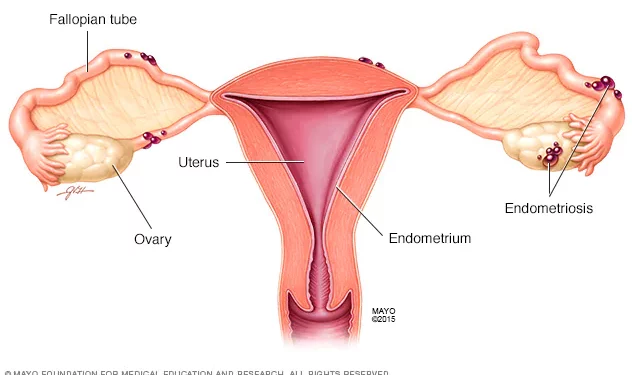As a teenager, Kgomotso Mpho Gagosi, from Botswana enjoyed a healthy life. She had already planned how her life would be: go to school, after graduation, get a job in a reputable organisation and get married with kids.
When Gagosi clocked 14, however, her dream was threatened. That was the year she started her menstrual cycle. Unlike every other teenager, her menstrual period comes with excruciating pain.
“I started feeling pain from the first day that I had my periods. I thought it was normal. My mother would give me pain killers,” Gagosi told LEADERSHIP.
She decided to seek medical attention, but it only made things worse for her. “The doctor told me I had Sexually Transmitted Infection (STI). I was 14 years old and had not yet had sex. I was being given penicillin for a disease I didn’t have. That was pathetic. The next time I went to the hospital with the same symptoms, I was told I had undergone an abortion because I was bleeding heavily. Again at 14, I had never had sex,” she lamented.
Annie Jimmy, an entrepreneur in Nigeria, has also been searching for an explanation as to why she has been having painful menstrual period, that has made her abandoned her job and prevented her from accomplishing her dream.
Jimmy told LEADERSHIP that she is terrified when her menstrual cycle is approaching. “I could not accomplish anything during my menstrual period because the pangs traveled from my tummy to my legs. I had to resign from my dream job,” she explained.
She decided to seek medical attention and like Gagosi, she was misdiagnosed. “I visited many hospitals and had more than 20 scans, yet, no one was able to tell me what was wrong with me. For instance, one hospital diagnosed me with fibroid and sent me for fibroid surgery. I know I don’t have fibroid since the scans didn’t show one, but because it was coming from a medical personnel, I decided to go.
“Four gynaecologists examined me at the hospital and all stated they found nothing. I decided to narrate my problem to them, but they could not understand me. I eventually gave up and quit seeking for answer.”
The co-founder, African Endometriosis Awareness and Support Foundation and managing director, Nordica Fertility Centre, Nigeria, Dr, Abayomi Ajayi, at the 2nd international conference of the Foundation, which took place in Nigeria, said endometriosis, otherwise known as a painful disorder, occurs when tissues similar to the ones that line in the uterus, grow outside the uterus.
Ajayi disclosed that one in 10 women, representing 200 million women and girls are living with endometriosis globally, adding that the condition is oftentimes misdiagnosed, mislabelled and mismanaged in Africa.
He said pain is the hallmark of endometriosis and the commonest symptom, adding that this pain could come during the menstrual period, which tends to get worse over time.
“The pain usually disturb their normal chores. They also experience abnormal bleeding which can come from the navel and cough out blood. About 40 to 50 per cent of women living with endometriosis could have fertility issue. When they are menstruating, it brings a halt to their normal life.
“Most doctors described the women living with the condition as people who just want to waste time. Sometimes, the doctor said the problem is in their heads and they have been made to see psychiatrists,” Ajayi explained.
The co-founder revealed that endometriosis has no cure, adding that it has affected the quality of life of women living with the condition. “This is a condition that they have to live with, till the stage of menopause ,” he said.
He however said that early diagnosis is important, because one of the issues of endometriosis in Africa is that diagnosis is usually late.
He however advocated for more awareness among Africans and doctors, adding that menstrual period do not supposed to incapacitate women. “When it does, parents and doctors should be worried and should think of endometriosis,” he said.



